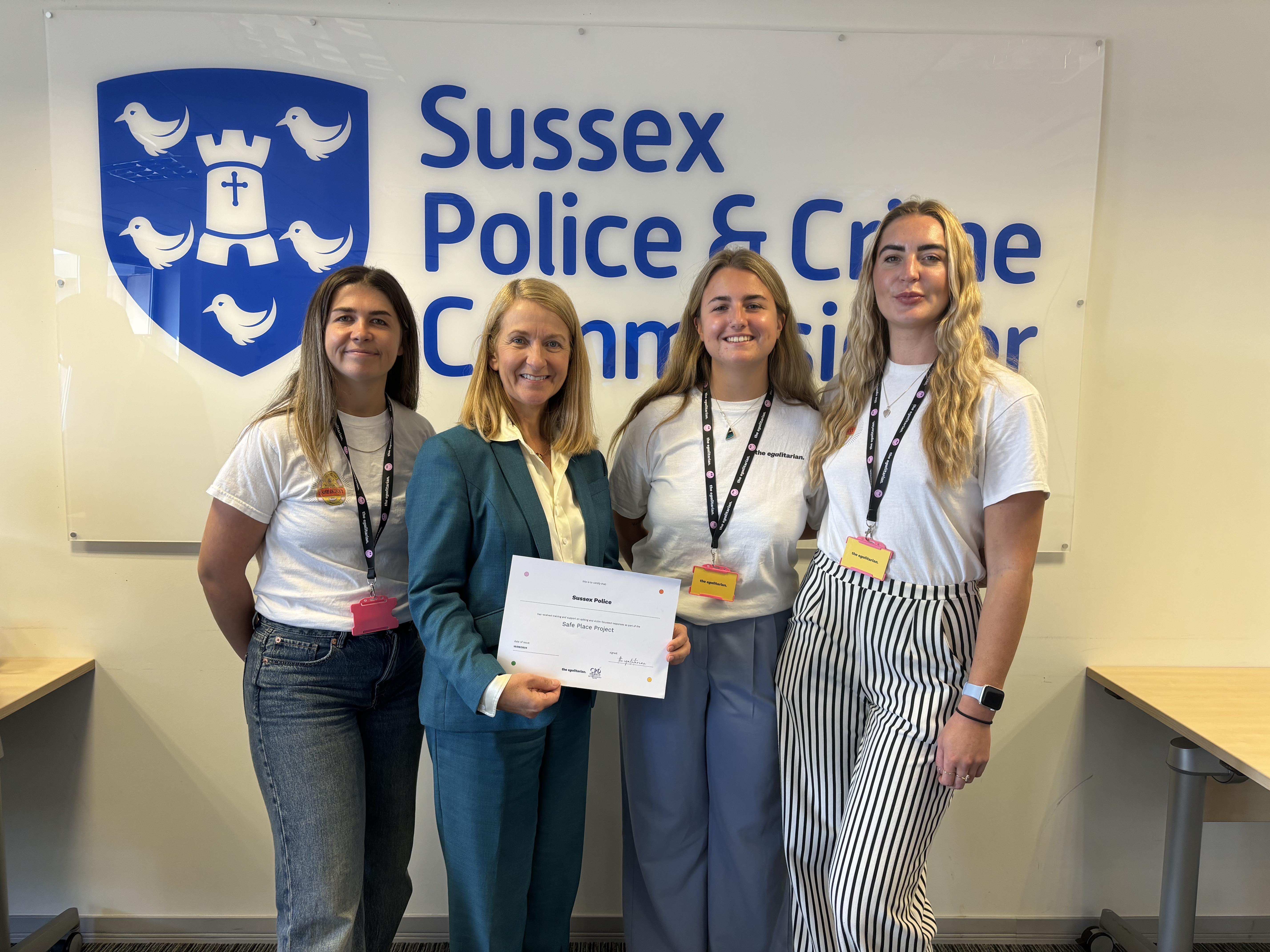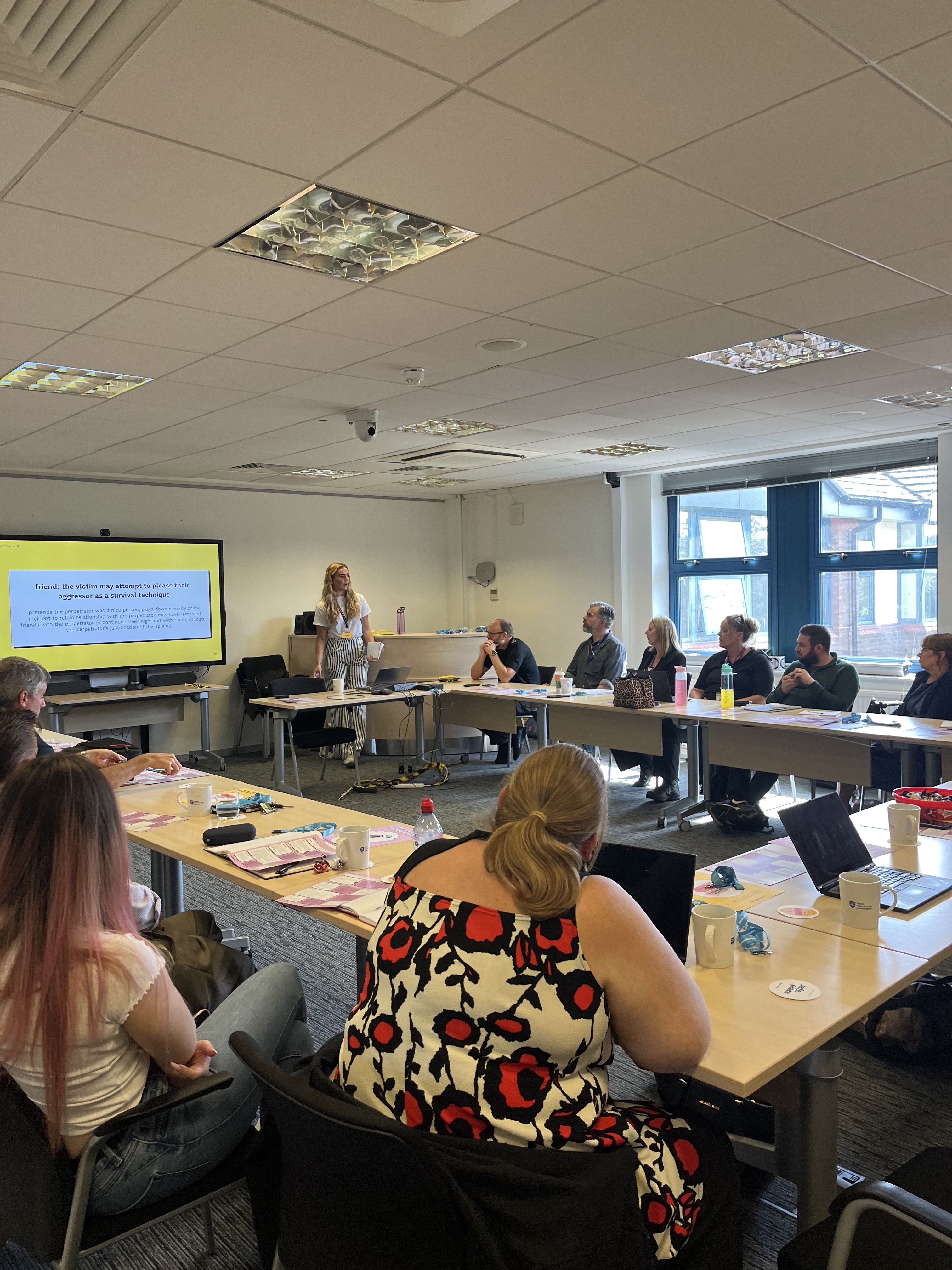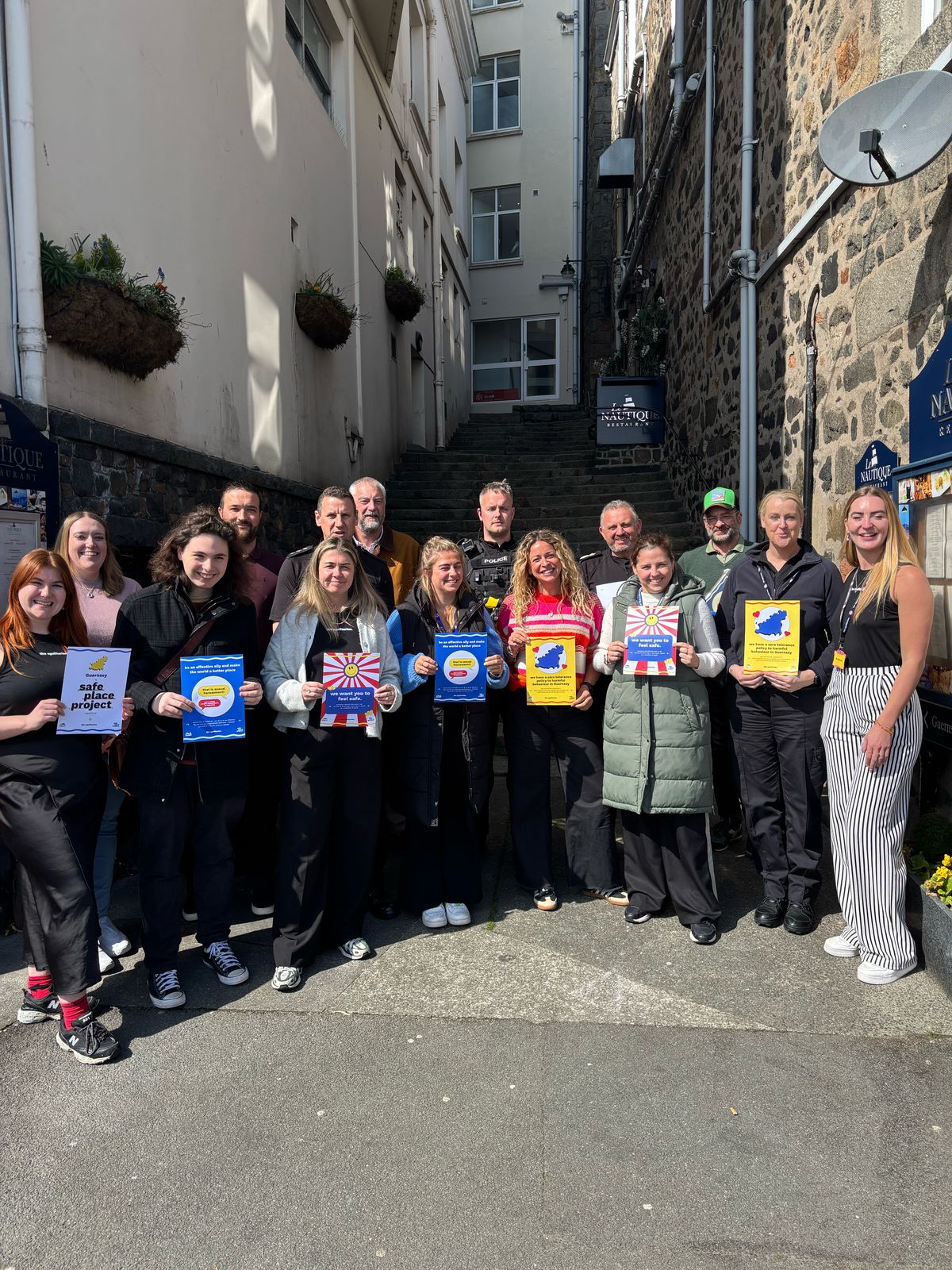we understand how important it is to
work alongside authorities to increase the level of reporting of incidents of harm in the night time economy and the challenging work they do to
tackle these crimes. We want to help the police provide a
victim-led approach when receiving disclosures to
empower victims to report, and increase pubic trust. we specialise in running training sessions that are
engaging, collaborative and insightful with teams of a range of sizes and seniority.
we draw on
real life scenarios from victims to explain the importance of being
trauma-informed and
victim-led. we can tailor our training to suit the needs of your team; we have experience working with those receiving disclosures of
spiking and sexual violence and those who are first respondents to these incidents. we also offer
policy and procedure consultations with police, to assist in directing staff receiving first disclosures on how to be
victim-led, trauma-informed and
anti-victim blaming. we can assist with implementation of these procedures and offer workshops with staff who need it to solidify our guidance and the new processes.
we specialise in
spiking: methods and trends - we look at the definition of spiking, outlining the
importance that consent plays and the differences between the methods used to spike someone, indicating to officers the current trends and how these incidents occur in the night time economy setting. we use our
research and
expertise on
spiking to inform our service. our
unique analysis into
spiking perpetrator behaviours through speaking with victims, analysing descriptions of incidents and running surveys with our community, is used to inform police of how perpetrators may act prior to, during and after a spiking. we show police how to be
forward thinking in catching perpetrators and assist them with disseminating this information to night time economy venues. we also look at the
real life experiences of our community, how spiking has
impacted victims, the results of being spiked and how it could have been prevented. we work annually with police organisations for Spiking intensification week.
dealing with first disclosures - drawing on experiences from our community, we help officers understand their importance when it comes to
empowering victims of spiking and making sure they are being
believed, supported and listened to. ultimately, this encourages victims to push prosecutions forward, engage with the police and are more likely to report other incidents they may become victim to in the future. helping officers understand the
motives behind why people spike others will improve their response to disclosures, increasing their ability to communicate effectively with victims and track the rate of spiking on a national level we use real life examples to show the importance of the role police officers play in ensuring drug tests are taken in a way that is sufficient to use as evidence.
a trauma-informed response: an anti-victim blaming narrative - we help officers understand the importance of listening to the victim, ensuring that they are aware they are in control of what happens to their report and they are
not to blame for what happened to them. we ensure that officers understand trauma responses in specific relation to spiking, using the lived experience of our trainers and our community to cover the impact of spiking on
mental health, well-being, safety and other aspects of life affected by the trauma. we provide helpful phrases and techniques in ensuring a victim-led and trauma-informed response when speaking with victims using our knowledge on the motives behind spiking, we ensure that officers have
considered all avenues in terms of evidence, thinking about sexual offences, theft and testing a drug on another person. we explain the different
trauma responses to spiking, helping officers consider the victim’s feelings.
restorative justice - we provide a line of communication with victims and venue staff when a spiking incident has taken place at their venue, as it allows the victim to feel heard, supported and taken seriously.whilst a restorative justice process will involve the perpetrator, not the venue, we will still be aiding the victim to express their feelings. it is more often than not that victims blame themselves for what happened to them and a restorative justice process will help the victim put blame elsewhere and regain control of their experience.we will not make assumptions of feelings or inform people of how they should react; we will act as facilitators not enhancers.



.jpg)